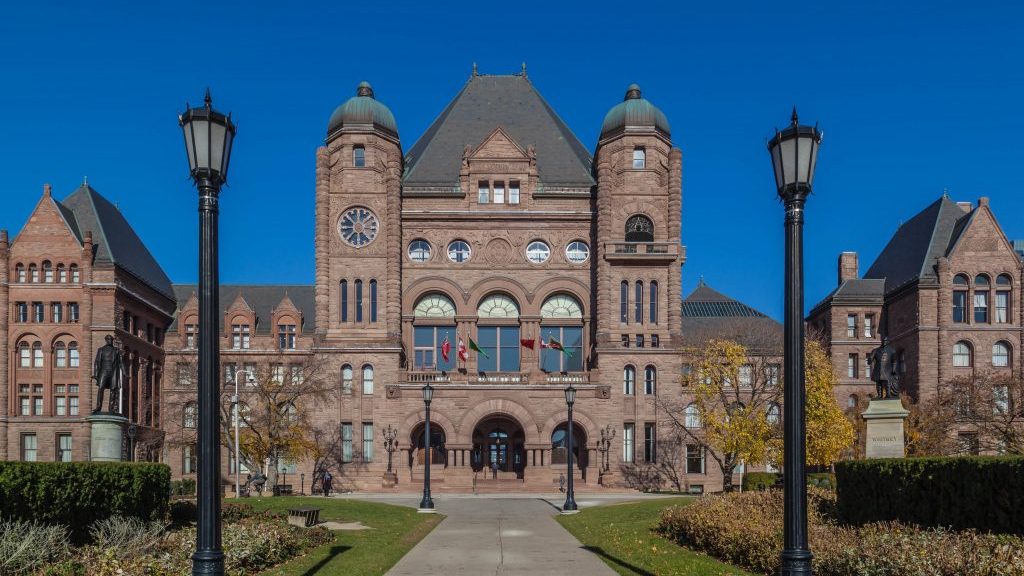TORONTO – Ontario reversed course Wednesday on its plan to dissolve the Region of Peel, with the government citing concerns that the move could have led to significant municipal tax hikes.
The transition board that has been working on the dissolution will instead focus on finding efficiencies in the upper-tier government located west of Toronto and improving regional services such as policing, paramedics and public health, the province said.
“The evidence we have seen is clear, full dissolution would disrupt critical services and lead to higher taxes for the people of Mississauga, Brampton and Caledon,” Housing Minister Paul Calandra said.
“And while some people might be OK with that, our government clearly is not.”
Calandra did not provide evidence or numbers to back up his claim. He said the dissolution would also slow down housing builds.
“Not only would this be very costly to devolve into the three component parts, not only would it cost local rate payers significantly, but equally important, it would cause a level of uncertainty that would stop us from getting the shovels in the ground,” he said.
It was the latest reversal for Calandra, who has been walking back a number of big government initiatives since he took over the housing portfolio in September after his predecessor resigned amid the Greenbelt scandal.
Removing land from the protected Greenbelt, a move that is being investigated by the RCMP, was reversed by the government earlier this year, as were forced urban boundary expansions.
The government passed the Hazel McCallion Act in the spring to dissolve Peel Region, which is made up of Mississauga, Brampton and Caledon.
The act fulfilled a promise Premier Doug Ford made to the former longtime mayor of Mississauga that it would stand as an independent city.
Brampton Mayor Patrick Brown recently said the dissolution would cost more than $1 billion and leave his city with no choice but to raise taxes.
Outgoing Mississauga mayor and new Ontario Liberal Party Leader Bonnie Crombie wants Peel to dissolve and has questioned the accuracy of Brown’s figures.
The new mandate for the Peel transition board asks it to bring forward recommendations to remove the “duplicative layer of regional bureaucracy” to help build housing faster.
Calandra said the transition board will also look to “optimize services that will help build more homes, including land use planning, servicing roads and waste management.”
NDP Leader Marit Stiles said the government should have crunched the numbers before it introduced legislation. Ford’s reversals have become a pattern, she said.
“Just like every other bill, they’re now going to have to introduce a bill to repeal said bill,” Stiles said.
“The province of Ontario is not a circus, right? We need, we deserve, good government. We deserve responsible government. We deserve government that actually has the best interest of Ontarians at heart and not silly games.”
Ontario is also cancelling audits of six municipalities launched earlier this year to determine whether local governments are facing a revenue shortfall as a result of a provincial law that cuts some of the fees developers pay.
Municipalities use the money from those fees to fund housing-enabling infrastructure, and the Association of Municipalities of Ontario has said the provincial changes will leave those communities $5 billion short.
The former municipal affairs and housing minister had contended that municipalities were sitting on billions of dollars in reserve funds and launched those audits with a promise to make them “whole” if there was indeed a shortfall.
Calandra also said he is considering revoking or amending several Minister’s Zoning Orders, which override local bylaws, for lack of action or lack of water or wastewater servicing for sites.
As well, the government said that measures it introduced earlier to spur the creation of “attainable” homes will be amended to incentivize the development of modular homes.
©2023 THE CANADIAN PRESS



Recent Comments
comments for this post are closed